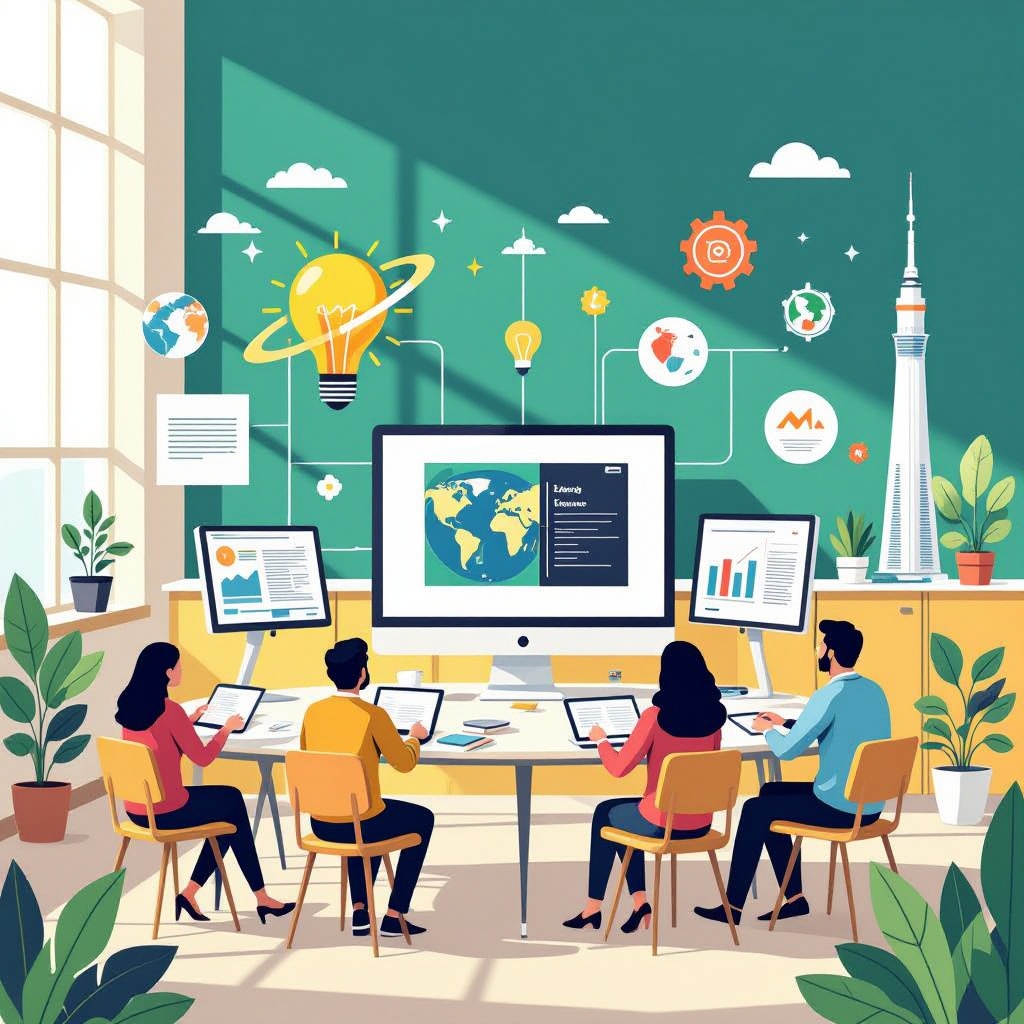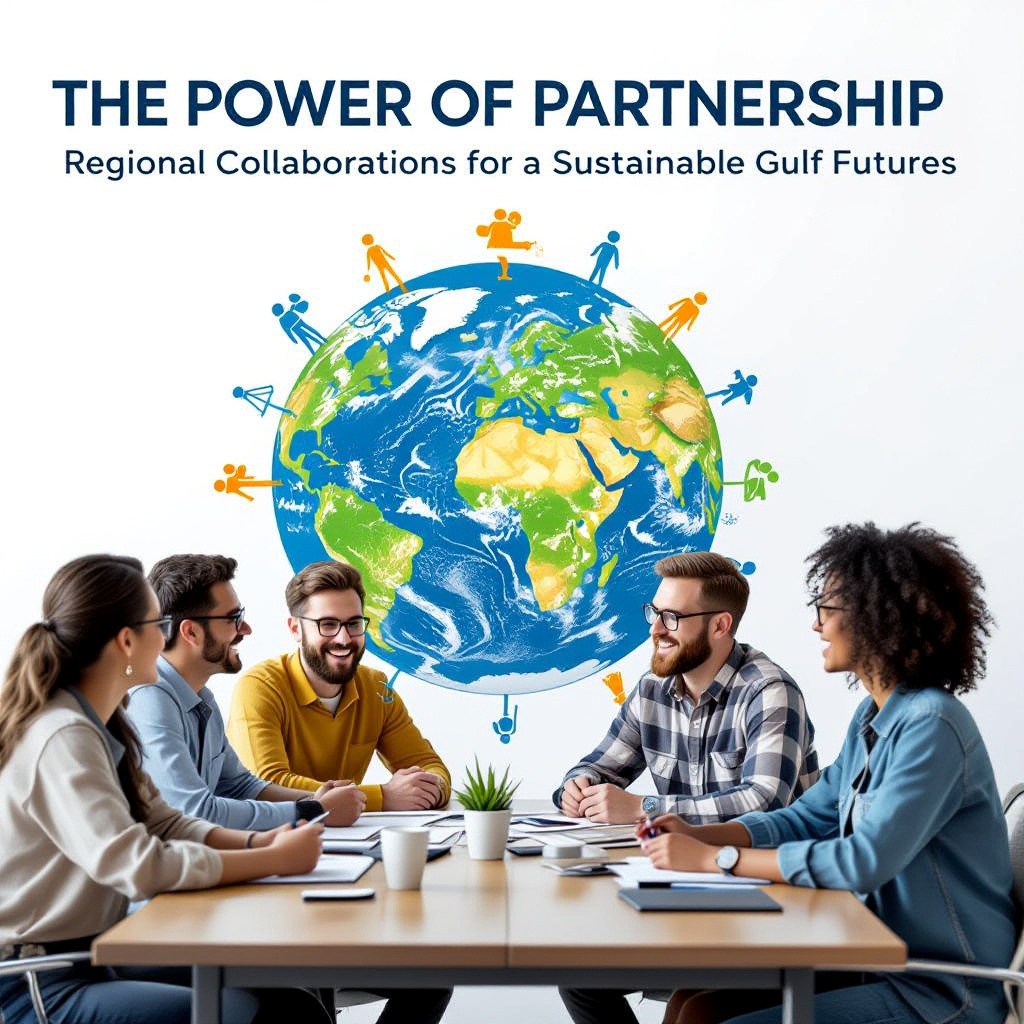Gulf schools are leading a groundbreaking path in sustainability through projects integrating solar energy, water conservation, and ecological education in curriculums. These initiatives deliver major reductions in energy and water usage while fostering a strong culture of environmental awareness and student-led action. Together, these efforts represent a bold leap toward a more sustainable future.
Key Takeaways
- Schools in regions like the UAE and Qatar have cut energy costs by 20–30% with solar panel installations.
- Rainwater harvesting in schools showcases a 40% drop in water usage, proving effective resource management.
- Sustainability modules are present in over 58% of UAE secondary schools, boosting awareness of sustainable development goals.
- Eco clubs in 85% of urban Gulf schools have elevated recycling rates and community involvement.
- Digital learning platforms in the GCC incorporate sustainability education, prompting a tech-driven shift in environmental literacy.
Revolutionizing School Infrastructure: Green Initiatives in the Gulf
Gulf schools are showing an inspiring commitment to sustainable infrastructure by embracing solar energy, water conservation, and recycling efforts. Schools in the UAE and Qatar have taken decisive steps, saving between 20–30% in energy costs by installing solar panels. By integrating rainwater harvesting systems, these institutions are also achieving up to 40% reductions in water usage.
One standout example is schools implementing LEED-certified expansions that feature solar-lit classrooms. These enhancements not only cut down on utility costs but also create healthier learning environments. By setting such standards, these schools are influencing broader perspectives on what sustainable infrastructure can look like.
To learn more about how schools around the world are adopting similar strategies, check out USGBC’s resources for further insights into sustainable school infrastructure. Understanding these initiatives showcases the forward-thinking approach to education in the Gulf.
Teaching Tomorrow: Integrating Sustainability into Curriculums
Teaching sustainability in classrooms is all about building awareness and literacy around environmental issues. Many schools embed Sustainable Development Goals, especially SDG 4, which focuses on quality education, into their daily learning activities. By incorporating these goals, schools foster a sense of environmental literacy among students.
Over 58% of secondary schools in the UAE offer elective or integrated sustainability modules. This is promising, as schools with these programs report a 10–15% higher awareness of sustainable development goals among students. Here are a few ways schools are integrating sustainability:
- Including sustainability in science and geography lessons.
- Encouraging project-based learning for real-world environmental issues.
- Hosting workshops on sustainable practices.
For more on how schools adopt sustainability, head over to UNICEF’s education page or the United Nations’ resources on SDG 4. You’ll find a wealth of information there that might be helpful.
Students Taking the Lead: Eco Clubs and Community Engagement
All across urban Gulf schools, eco clubs have become a popular addition, popping up in a striking 85% of these educational institutions. These student-driven initiatives are transforming campuses, sparking a renewed interest in recycling and community involvement. They’ve made such a difference that schools with eco clubs are seeing a whopping 25% jump in their recycling rates.
Eco clubs are all about active participation. They organize a variety of impactful events like e-waste days, where students collect and responsibly dispose of electronic waste. These events educate not only the participants but also the wider community on the importance of responsible waste management.
When you look at the schools with these clubs versus those without, the differences are significant. Schools benefiting from student-led eco initiatives tend to not only recycle more but engage their wider community effectively, spreading awareness far and wide. In contrast, schools lacking eco clubs often miss out on these substantial gains. The presence of a club instills a culture of sustainability that permeates throughout the entire institution.
For more insights on how educational institutions can promote sustainability, you can explore resources from organizations like the UNESCO and Environmental Protection Agency. These sites offer valuable information that can inspire more schools to get involved and continue making a positive impact.

Digital Transformation: E-learning and Sustainability in the Gulf
The rapid growth of digital learning in the Gulf Cooperation Council (GCC) is making waves, with an anticipated expansion surpassing $490 million. This surge highlights an increased focus on sustainability modules. Notably, Saudi Arabia and the UAE are leading the way, with over 56% of the region’s digital platforms incorporating virtual labs dedicated to teaching sustainability.
These digital platforms leverage tech-driven education to revolutionize learning experiences. They’re integrating sustainability apps that provide students with engaging, interactive content. This approach not only enhances understanding but also equips learners with skills relevant to today’s environmental challenges. For those curious about how digital learning tools can improve educational outcomes, the EdTechReview offers some valuable insights.
By embracing eLearning platforms, the Gulf region is setting a precedent for using technology to drive sustainable education. This technological emphasis isn’t just about improvement; it’s about fostering a future-ready mindset among students.

The Power of Partnership: Regional Collaborations for a Sustainable Future
Collaborations are crucial for schools looking to advance sustainability. In the Gulf, partnerships between schools, ministries, and NGOs are at the forefront of these efforts. Initiatives like Qatar Vision 2030 are leveraging such collaborations to champion sustainable education. This isn’t just isolated efforts; it’s backed by significant funding. For example, the UAE’s substantial AED 10.41 billion investment in education, which accounts for 14.8% of its federal budget, testifies to the commitment to sustainability.
Success stories abound from these ventures. They’ve sparked innovative competitions and ensured policy alignment across the board. Public-private partnerships play a pivotal role, as do sustainability task forces. Regional ministries are working hand in hand with schools, creating powerful synergies. The overarching goal? A future where education and sustainability go hand in hand, creating an impactful legacy for future generations. Interested in education initiatives? Discover more about these partnerships.

Frequently Asked Questions
🌞 How are Gulf schools using solar energy to cut costs?
Many Gulf schools, particularly in the UAE and Qatar, are installing solar panels as part of their green infrastructure. These systems have helped schools reduce energy costs by 20–30% while supporting national sustainability goals.
💧 What water-saving technologies are being adopted in schools?
Schools are implementing rainwater harvesting systems that contribute to up to 40% reductions in water usage. These eco-friendly solutions are excellent examples of sustainable water management in educational infrastructure.
📚 How is sustainability being taught in Gulf classrooms?
Educators are integrating Sustainable Development Goals (SDGs), especially SDG 4, into subjects like science and geography. Schools with such instructional approaches report a 10–15% rise in sustainability awareness among students.
🌿 What impact do student-led eco clubs have on campuses?
Eco clubs, now present in over 85% of urban Gulf schools, are driving major improvements in recycling rates and community engagement. These student initiatives lead to a 25% increase in recycling efforts while building a culture of environmental responsibility.
💻 How is e-learning advancing sustainability education?
Digital platforms across the GCC are leveraging virtual labs and sustainability apps to make lessons more interactive and future-focused. With countries like the UAE and Saudi Arabia investing heavily, over 56% of platforms now include sustainability modules.
🤝 Why are partnerships essential for educational sustainability in the Gulf?
Initiatives such as Qatar Vision 2030 showcase how ministries, NGOs, and schools collaborate to promote sustainability. Backed by major investments like the UAE’s AED 10.41 billion education budget, these partnerships foster lasting eco-education reform.
Sources:
GCC Stat – “Objectives of Sustainable Development”
Consultancy-me – “Learning & Development in the GCC: 10 Trends for 2025”

One Comment
[…] and Abu Dhabi—presents both opportunities and challenges. Major initiatives focus on expanding infrastructure, embracing digital innovations, and advancing policy reforms to meet evolving educational […]